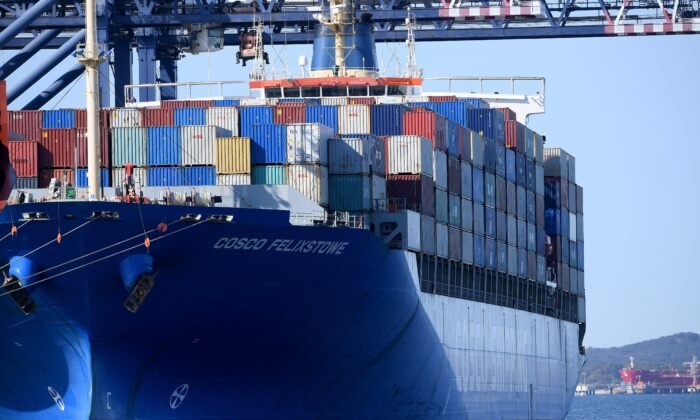Pandemic Echoes Drive Consumer Prices Up as Freight Issues Persist
Attacks on ships and other global freight issues are increasing costs for Australian businesses, leading to concerns about higher consumer prices, according to Freight and Trade Alliance director Paul Zali.
Zali compared the current supply chain challenges to a “baby COVID” situation in terms of rising freight costs during the pandemic.
He stated, “It is increasing costs, and that will flow on to consumers. From confectionery to luxury items, and even medical goods, all sectors will be affected.”
Recent attacks by Houthi militants on ships in the Red Sea have caused delays, forcing vessels to divert around Africa’s Cape of Good Hope to reach Asian trans-shipment ports like Singapore.
These longer routes are delaying the arrival of empty containers at ports, reducing the availability of containers for transporting goods and creating complications in trade hubs.
Zali also highlighted the impact of Biden administration tariffs on Chinese goods and the potential for more protectionist policies under a returning Donald Trump presidency, which could further strain global trade capacity by leading to an influx of goods from China to the U.S.
The Drewry’s World Container Index, which tracks container prices, has more than doubled since early-May, raising concerns about the impact of shipping on inflation.
Assistant Trade Minister Tim Ayres noted that global shipping dynamics have been affecting shipping duration and costs to Australia, especially since security issues arose in the Red Sea.
He stated, “Australia’s location at the end of the Southeast Asian archipelago makes it reliant on global trade, impacting both imports and exports.”
Senator Ayres mentioned that the Albanese government is focused on managing inflationary pressures through measures like budget surpluses and cost-of-living relief that do not contribute to inflation.
Monthly inflation figures have raised concerns about potential interest rate hikes, with the Australian Bureau of Statistics reporting a higher-than-expected four percent rise in May.
Economists from ANZ expect interest rates to remain unchanged until February 2025, despite speculations about a possible hike following a more hawkish statement from the Reserve Bank of Australia.
Recent spending data suggests subdued consumer activity, with renter spending showing a decline compared to homeowners and mortgage holders.
Overall, economic challenges are impacting renters more severely, according to the Commonwealth Bank household spending indicator.






